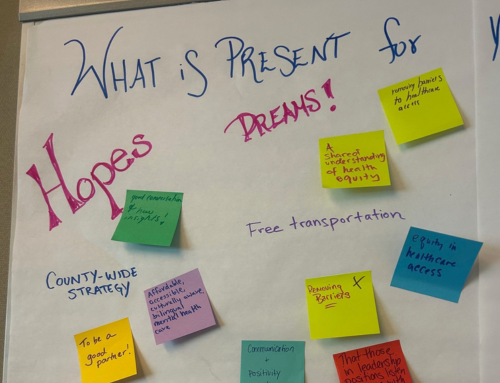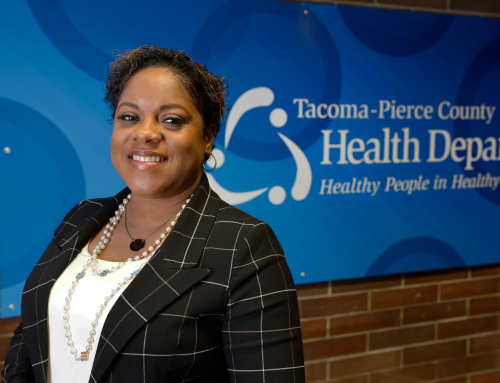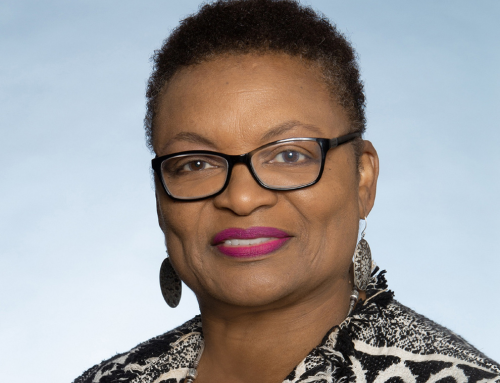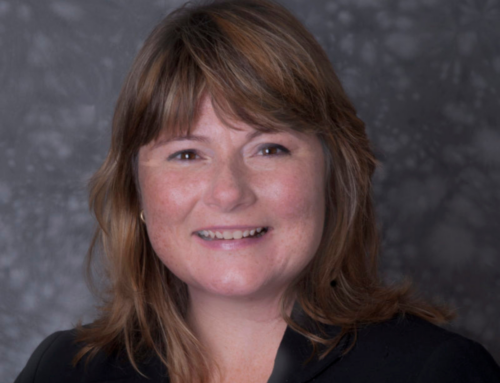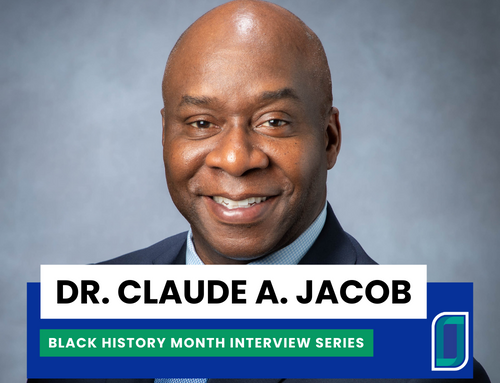The Oregon Health Authority (OHA) has embraced resources provided by the Public Health Accreditation Board (PHAB) Center for Innovation to drive transformation in their public health system. Through their participation in the 21st Century Learning Community (21C), OHA has collaborated with other states to address future challenges and promote public health system improvement.
Since 2015, 21C has brought together representatives from state and local health departments, academic partnerships, and partner organizations to discuss public health nationally. At the start, the initiative included only a few states such as Oregon, Washington, and Ohio. It has since expanded to include close to 20 states.
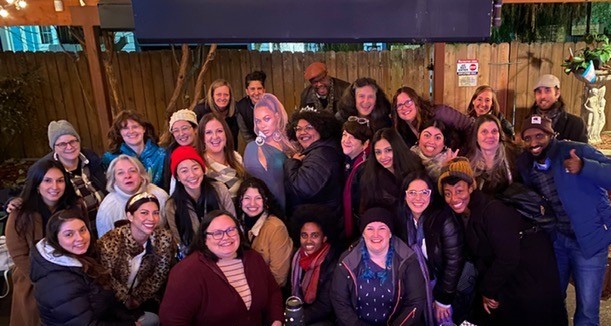
Sara Beaudrault, MPH, OHA Strategic Initiatives Manager, highlights the value of collaboration within 21C, as it provides a space for states to learn from each other and collectively prepare for future public health challenges.
“[21C] has information and resources available online for other states interested in exploring the Foundational Public Health Services (FPHS) framework,” Beaudrault said. “States should also reach out to other states that have already begun [using the framework]. The 21C community is a tight-knit group and we are all happy to share our experiences and tips with others.”
She said one of the key benefits of participating in 21C is the opportunity for health departments, who tend to have limited resources and funding, to engage in impactful discussions and provide advice to one another. By leveraging the collective knowledge and experiences of the community, OHA and other states have strengthened their public health efforts.
Through OHA’s participation in 21C, the agency is committed to driving transformative changes in Oregon’s public health system.
“There is no one right path to implementing a statewide framework like the FPHS. The tools and resources available through [21C] are critical to success, but states will always have the flexibility to be responsive to the needs and local context within their own state,” she said.
21C isn’t the only way Oregon has been focused on transformative work.
In 2016, Oregon completed a public health system assessment to examine their capacity and expertise to fulfill core functions for governmental public health. The assessment also estimated the funding and resources needed to achieve a sustainable, accountable, and equity-focused public health system.
The assessment found significant gaps. In more than one third of Oregon communities, foundational public health programs like emergency preparedness and response were limited or minimal. And across the state, the largest gaps were in fulfilling responsibilities necessary to achieve health equity and cultural responsiveness.
Today, Oregon continues to use the assessment and costing information to develop legislative funding requests and to guide how investments are used to close known gaps and achieve a modern public health system.
Recently, Oregon received an additional $50 million in funding to support their public health modernization efforts, bringing their total two-year budget to more than $110 million. This funding will be used to fund state, local, and Tribal efforts to directly tackle health inequities regarding communicable disease, chronic disease, emergency preparedness, climate resilience, and reproductive health. A portion of this funding is also provided directly to community partners to provide culturally specific services within their communities.
OHA is also committed to using new investments to develop a statewide public health equity framework and a statewide public health workforce plan.
Oregon’s 2016 assessment and costing work informed efforts to develop national assessment and costing tools, and they have been able to share their early work with other states that have undertaken assessment and costing more recently.
Beaudrault encourages health departments across the country to collaborate and find innovative ways to improve public health for all.
“The tools and resources available through [21C] are critical to success, but states will always have the flexibility to be responsive to the needs and local context within their own state,”
Sara Beaudrault, Oregon Health Authority
